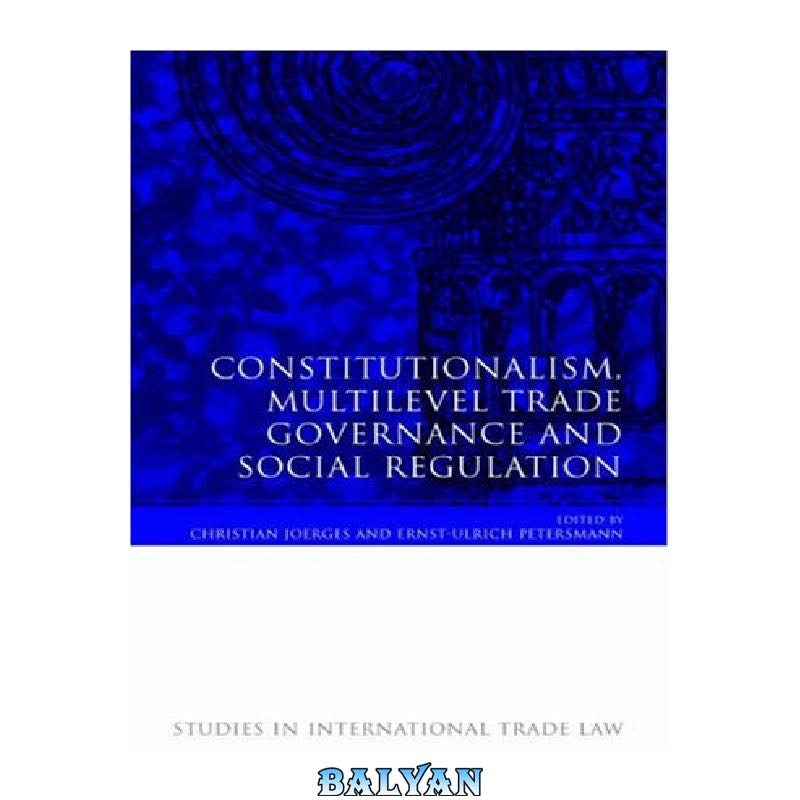This is a book about the ever more complex legal networks of transnational economic governance structures and their legitimacy problems. The book takes up the challenge of the editors’ earlier pioneering works which have called for more cross-sectoral and interdisciplinary analysis by scholars of international law, European and international economic law, private international law, international relations theory, and social philosophy to examine the interdependence of multilevel governance in transnational economic, social, environmental, and legal relations. Two complementary strands of theorizing are expounded. One argues that globalization and the universal recognition of human rights are transforming the intergovernmental ‘society of states’ into a cosmopolitan community of citizens which requires more effective constitutional safeguards for protecting human rights and consumer welfare in the national and international governance and legal regulation of international trade. The second emphasizes the dependence of the functioning of international markets and liberal trade on governance arrangements which respond credibly to safety and environmental concerns of consumers, traders, politicians, and non-governmental actors. Inquiries into the generation of international standards and empirical analysis of legalization practices form part of this agenda. The perspectives and conclusions of the more than 20 contributors from Europe and North America cannot be uniform. But they converge in their search for a constitutional architecture which limits, empowers, and legitimizes multilevel trade governance, as well as in their common premise that respect for human rights, private and democratic self-government, and social justice require more transparent, participatory, and deliberative forms of transnational ‘cosmopolitan democracy’.
ترجمه فارسی (ترجمه ماشینی)
این کتاب در مورد شبکه های حقوقی پیچیده تر ساختارهای حاکمیت اقتصادی فراملی و مشکلات مشروعیت آنها است. این کتاب چالش آثار پیشگام قبلی ویراستاران را که خواستار تحلیلهای بینبخشی و بینرشتهای بیشتر توسط محققان حقوق بینالملل، حقوق اقتصادی اروپایی و بینالمللی، حقوق بینالملل خصوصی، نظریه روابط بینالملل، و فلسفه اجتماعی شدهاند، میپردازد. وابستگی متقابل حکمرانی چند سطحی در روابط فراملی اقتصادی، اجتماعی، زیست محیطی و حقوقی. دو رشته مکمل نظریه پردازی توضیح داده شده است. یکی استدلال می کند که جهانی شدن و به رسمیت شناختن جهانی حقوق بشر در حال تبدیل “جامعه دولت ها” بین دولتی به یک جامعه جهانی از شهروندان است که نیازمند تدابیر موثرتر قانون اساسی برای حمایت از حقوق بشر و رفاه مصرف کننده در حاکمیت ملی و بین المللی و مقررات حقوقی بین المللی است. تجارت دومی بر وابستگی عملکرد بازارهای بینالمللی و تجارت لیبرال به ترتیبات حاکمیتی تأکید میکند که به طور قابل اعتمادی به نگرانیهای ایمنی و زیستمحیطی مصرفکنندگان، بازرگانان، سیاستمداران و بازیگران غیردولتی پاسخ میدهد. تحقیقات در مورد تولید استانداردهای بین المللی و تحلیل تجربی شیوه های قانونی سازی بخشی از این دستور کار است. دیدگاه ها و نتیجه گیری بیش از 20 مشارکت کننده از اروپا و آمریکای شمالی نمی تواند یکسان باشد. اما آنها در جستجوی ساختاری قانون اساسی که حکومت تجاری چندسطحی را محدود، توانمند و مشروع میکند، و همچنین در فرض مشترکشان که احترام به حقوق بشر، خودمختاری خصوصی و دموکراتیک، و عدالت اجتماعی مستلزم شفافیت و مشارکت بیشتر است، همگرا میشوند. و اشکال مشورتی «دموکراسی جهان وطنی» فراملی.












نقد و بررسیها
هنوز بررسیای ثبت نشده است.